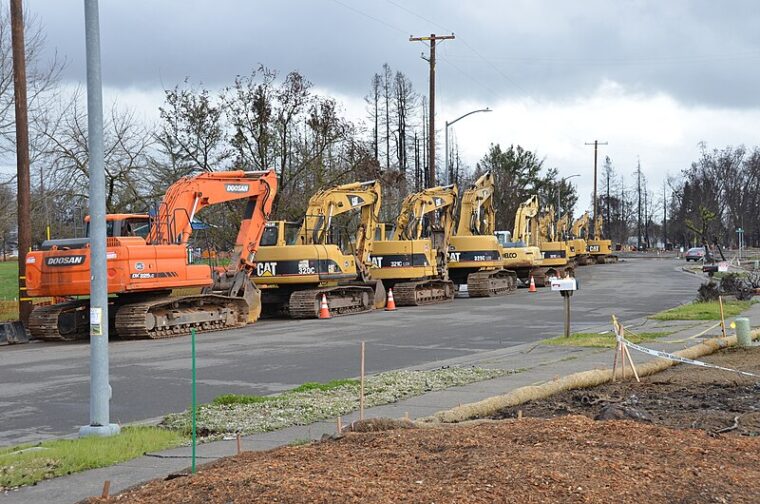
California will receive $60.6 million in federal funding to help communities prepare for and respond to extreme weather events, such as wildfires, flooding and extreme heat.
Annual statewide losses related to wildfires average an estimated $117.4 billion. More than $900 billion in homes and other buildings are at risk of flooding, and extreme heat events have become notably hotter in the past decade, especially at night, and are occurring more often across the state.
The funding was made available through grants administered by the U.S Department of Transportation’s Promoting Resilient Operations for Transformative, Efficient and Cost-Saving Transportation (PROTECT) program.
The announcement was made last week as what’s widely considered to be the start of wildfire season in California begins.
“As climate change increases the frequency and intensity of floods, wildfires, and extreme heat, climate-smart transportation infrastructure can be the difference between life and death,” said Sen. Alex Padilla (D-California).
The PROTECT Grant Program funds projects to make transportation infrastructure more resilient to future weather events and other natural disasters by focusing on resilience planning, making resilience improvements to existing transportation assets and evacuation routes, and addressing at-risk highway infrastructure.
Eligible projects include highway and transit projects, bicycle and pedestrian facilities, and port facilities, including those that help improve evacuations or disaster relief.
Awards include:
$23.9 million to the City of Davis, which will install cool pavement technologies and replace roadway underlayment to rehabilitate several portions of roadways across 15 locations. The project will help guard against extreme heat conditions and combat heat island effects, enhance roadways and make other safety improvements.
$20 million to the Metropolitan Transportation Commission to improve corridor resilience and prevent flooding impacts on a 10.4-mile section of State Route 37 by installing sheet pile walls, nature-based and engineered side slope reinforcement, and raising the profile grade at two segments. The project is part of a larger corridor plan that will improve mobility, reduce emissions, and improve safety and public access, serving disadvantaged communities in Sonoma, Napa and Solano counties.
$5.3 million to Tulare County to improve an approximately 2-mile segment of Avenue 56 to protect a critical evacuation route for the community. Recent historic rainfall caused significant flooding that prompted the evacuation of the rural Alpaugh community and the construction of a temporary elevated roadway. This project will construct a permanent elevated roadway and widen the roadway to ensure it will be operational during future flooding events.
$4.1 million to develop a plan that identifies evacuation route improvements for State Routes 96 and 169, focusing on resilience elements against wildfire, extreme weather impacts, and other climate related events. This project will improve and protect access for disadvantaged communities, including Hoopa, Karuk, Yurok and Tsnungwe Tribes, to obtain goods, services, and medical care, connection to cultural resources, and emergency access in and out of the region.
$3.1 million to Los Angeles County to implement intelligent transportation strategies on and around the Castaic-Santa Clarita Valley section of I-5 to minimize delays during evacuations and improve emergency response times to help save lives. Components of the project include changeable message signs, sensors, closed-circuit TV cameras, advanced traffic controllers and communications that will enable real-time traffic monitoring and operations to support evacuation routes.
$2.2 million to the Ewiiaapaayp Band of Kumeyaay Indians, who will receive over $2.2 million to address transportation safety deficiencies on the sole access route to a section of the Ewiiaapaayp Reservation. The funds will be used for engineering design, environmental design, and construction for road improvements on a 3.79-mile segment of Thing Valley Road. The project will create a secondary evacuation route for the safe passage in the event of an emergency, such as a wildfire.
Photo by the U.S. Army Corps of Engineers Sacramento District
The post California gets $60.6 million to prepare for extreme weather events appeared first on Government Market News.
